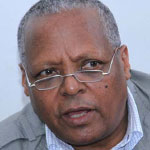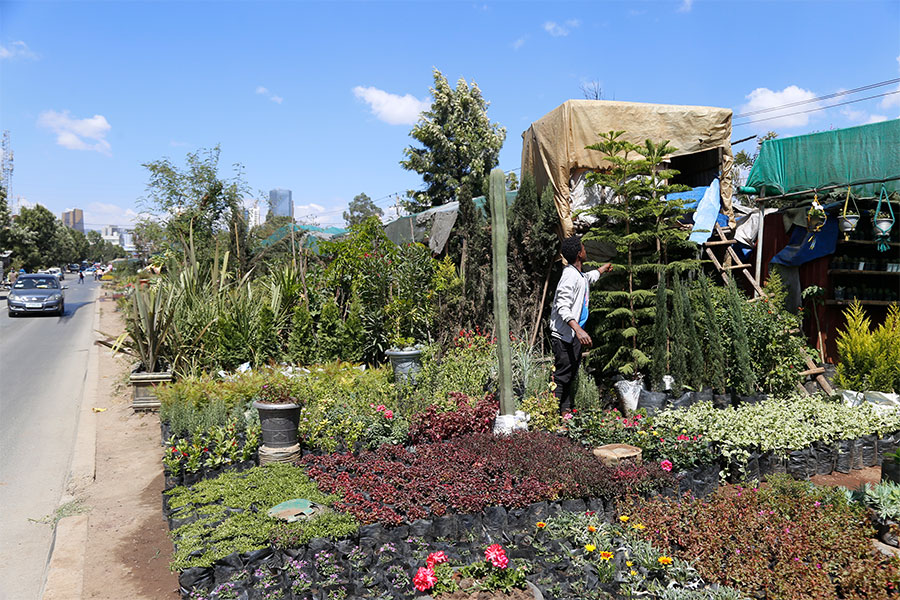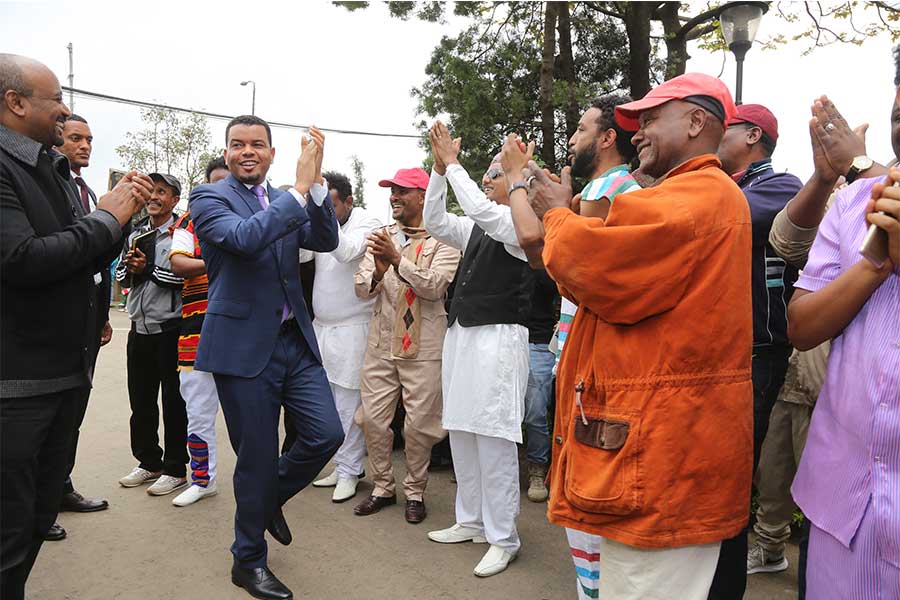
Verbatim | Jun 08,2019
Jul 25 , 2020
By Kidist Yidnekachew
A group of 20 to 25-year-olds stand in the centre of a courtyard to the Bole Bulbula condominium complex in Addis Abeba. They surround several eucalyptus trees that are twice their age. They go back and forth, discussing how to proceed with cutting them down.
I lingered in the distance to hear what justification they could possibly have for cutting down these majestic towers of nature. They are home to the multitude of birds that adorn the neighbourhood skyline and greet the residents of the area in the morning with their melodious singing.
After over 20 minutes, I learned their unfounded justification. Given their layout, the roots of the trees threatened the foundations of the Condominium buildings. Ten more minutes and their true intentions became clear. The young men wanted to plant crops such as collard greens, spinach, carrots and tomatoes to sell to the condominium residents.
I could sympathise. Urban farming and community gardening are increasingly being forwarded as part of a solution to perpetual difficulty with food security and malnutrition. Also, in a country where the economy is slowing and well-paying job opportunities are becoming harder and harder to come by, initiatives such as these may seem innocuous and even admirable.
However, cutting down trees to make way for the purposes of planting does not make it any less of a part of the deforestation that has gone on in Ethiopia just because it is now being done in urban areas. It is counterproductive to go down this path even as there is a national campaign to restore Ethiopia’s rich forestry. It is well documented that farming and the production of coal and lumber has degraded our ecosystem over the past century from what was a rich forest land accounting for about a third of the country's area.
The forests are gone now, taking with them the fertility of our soil that we boasted about at every opportunity. It turns out that trees are natural filtration systems, necessary to maintain the fertility of the soil. We cannot have the one without the other.
The irony, which may apply to the country as well, is that the condominium compound is surrounded on three sides by vacant land not allotted to any construction. Urban farming, but more likely community gardening, could be better served by bringing together residents and the local authorities to organise and coordinate a project that fits well into the Addis Abeba City Administration’s initiatives on urban farming.
The thought of cutting down trees despite greater needs for environmental sustainability, especially as we are witnesses to the compounding effects of climate change, should outrage us all. It is astounding how we live in the age of information and yet refuse to be informed. It is even more surprising how we manage to dismiss events as insignificant and fixable in the long-term, with remarks such as “it doesn’t matter.”
It is easy to dismiss the importance of trees that have already rooted and are fully acclimated and flourishing since none of us witnessed what it took to get them there or the bare land that has come to replace areas that were once covered in forests.
It is a testament to human absurdity that, given the current circumstances, many more trees may begin to be cut down under the logic, “we have trees to spare now, we have planted billions.”
But do we know how long it takes a tree to grow as tall as a building or the knowledge and experience that have gone into holding in place any system?
It is hard to say that we do. Sacrifices were paid to put in place almost everything we see around us, including the trees. When we cut them down, we have to weigh the consequences carefully. Otherwise, even our best intentions can take us down a path we will later regret.
Patience is something that we usually learn when we are older, but it is the virtue that can make or break our lives. Patience gives us time to rethink the puzzle presented to us and help us arrive at alternatives. It does this by letting the momentary slip of anger that plagues people pass and see things more clearly.
PUBLISHED ON
Jul 25,2020 [ VOL
21 , NO
1056]


Verbatim | Jun 08,2019

Featured | Jan 03,2021

Sunday with Eden | Aug 01,2020

Sunday with Eden | Jun 12,2021

Sunday with Eden | Nov 07,2020

Viewpoints | May 23,2021

Verbatim | Oct 20,2024

Sunday with Eden | Apr 26,2019

Radar | Jul 27,2019

View From Arada | Mar 30,2019

My Opinion | 131981 Views | Aug 14,2021

My Opinion | 128369 Views | Aug 21,2021

My Opinion | 126307 Views | Sep 10,2021

My Opinion | 123925 Views | Aug 07,2021

Dec 22 , 2024 . By TIZITA SHEWAFERAW
Charged with transforming colossal state-owned enterprises into modern and competitiv...

Aug 18 , 2024 . By AKSAH ITALO
Although predictable Yonas Zerihun's job in the ride-hailing service is not immune to...

Jul 28 , 2024 . By TIZITA SHEWAFERAW
Unhabitual, perhaps too many, Samuel Gebreyohannes, 38, used to occasionally enjoy a couple of beers at breakfast. However, he recently swit...

Jul 13 , 2024 . By AKSAH ITALO
Investors who rely on tractors, trucks, and field vehicles for commuting, transporting commodities, and f...

Jul 5 , 2025
Six years ago, Ethiopia was the darling of international liberal commentators. A year...

Jun 28 , 2025
Meseret Damtie, the assertive auditor general, has never been shy about naming names...

Jun 21 , 2025
A well-worn adage says, “Budget is not destiny, but it is direction.” Examining t...

Jun 14 , 2025
Yet again, the Horn of Africa is bracing for trouble. A region already frayed by wars...

Jul 6 , 2025 . By BEZAWIT HULUAGER
The federal legislature gave Prime Minister Abiy Ahmed (PhD) what he wanted: a 1.9 tr...

Jul 6 , 2025 . By YITBAREK GETACHEW
In a city rising skyward at breakneck speed, a reckoning has arrived. Authorities in...

Jul 6 , 2025 . By NAHOM AYELE
A landmark directive from the Ministry of Finance signals a paradigm shift in the cou...

Jul 6 , 2025 . By NAHOM AYELE
Awash Bank has announced plans to establish a dedicated investment banking subsidiary...